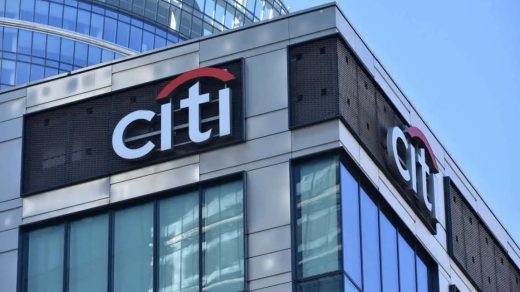Stepping into the world of commercial property ownership is an exciting venture for any business. However, one of the first hurdles you’ll encounter is the commercial mortgage deposit.
This crucial element can seem daunting at first, but with the right knowledge, you can navigate this process with confidence.
How Much Deposit is Payable on a Commercial Mortgage?

This comprehensive guide will break down everything you need to know about commercial mortgage deposits.
We’ll explore what they are, why they’re necessary, how much you might need, and strategies to manage them effectively.
Whether you’re a small business owner looking to buy your first office space or an experienced investor eyeing a new retail property, this guide will provide valuable insights to help you make informed decisions.
What is a Commercial Mortgage Deposit?
A commercial mortgage deposit is an upfront payment you make when purchasing a business property using a mortgage.
It represents a percentage of the property’s total value that you pay directly, with the remainder funded by the mortgage loan.
Key points about commercial mortgage deposits:
- It’s a lump sum payment made at the start of the mortgage process.
- It demonstrates your commitment to the purchase.
- It reduces the lender’s risk by ensuring you have a stake in the property.
- The amount can vary significantly based on various factors.
Do You Always Need a Deposit?
In the vast majority of cases, yes, you will need to provide a deposit for a commercial mortgage.
This is a standard requirement for most lenders due to the following reasons:
- Risk mitigation: Deposits reduce the lender’s exposure to potential losses
- Commitment indicator: They show that you’re serious about the investment
- Equity buffer: Deposits provide a cushion against market fluctuations
While it’s theoretically possible to find 100% loan-to-value (LTV) commercial mortgages, these are extremely rare and often come with strict conditions and higher interest rates.
How Much Deposit Will You Need?
The amount of deposit required for a commercial mortgage can vary widely. Let’s break it down:
Typical Deposit Range: 20% to 40% of the property’s value
Here’s a simple table to illustrate potential deposit amounts:
| Property Value | 20% Deposit | 30% Deposit | 40% Deposit |
|---|---|---|---|
| $250,000 | $50,000 | $75,000 | $100,000 |
| $500,000 | $100,000 | $150,000 | $200,000 |
| $1,000,000 | $200,000 | $300,000 | $400,000 |
Remember, these are just examples. The actual amount you’ll need can be influenced by numerous factors, which we’ll explore next.
Factors That Affect Your Deposit Amount
The required deposit can vary based on several key factors:
- Type of property Different commercial properties carry different risks for lenders. Here’s a general guide:
- Office buildings: Often require lower deposits (20-30%)
- Retail stores: Moderate deposits (25-35%)
- Warehouses: Similar to offices (20-30%)
- Restaurants or bars: Higher deposits due to increased risk (30-40%)
- Special use properties (e.g., hotels, theaters): May require the highest deposits (35-50%)
- Your business finances Lenders will scrutinize your business’s financial health. They’ll look at:
- Annual revenue
- Profit margins
- Cash flow stability
- Debt-to-income ratio
A strong financial position could lead to lower deposit requirements.
- Your credit history Both your personal and business credit scores matter. Here’s a rough guide:
- Excellent credit (750+): May qualify for a minimum deposit
- Good credit (700-749): Slightly higher deposit
- Fair credit (650-699): Expect to pay more
- Poor credit (below 650): Highest deposits, if approved at all
- The lender’s policies Each lender has its risk assessment criteria and policies. Some may specialize in certain types of commercial properties or businesses, affecting their deposit requirements.
- Current market conditions Economic factors and real estate market trends can influence deposit requirements. In uncertain times, lenders may ask for higher deposits.
- Loan-to-Value (LTV) ratio This is the loan amount divided by the property value. Lower LTV ratios (meaning higher deposits) are generally preferred by lenders.
- Purpose of the property If you plan to occupy the property for your business, you might get more favorable terms compared to buying it as an investment.
Benefits of Paying a Bigger Deposit
While it might be tempting to pay the minimum deposit possible, there are several advantages to putting down a larger amount:
- Lower monthly payments
- Less borrowed means lower regular payments
- Easier on your business’s cash flow
- Better interest rates
- Lenders often reward larger deposits with more favorable rates
- Even a small rate difference can save thousands over the loan term
- Easier approval process
- Demonstrates financial stability
- Reduces the lender’s risk, making them more likely to approve your application
- More equity in the property
- Protects against market downturns
- Useful if you need to borrow against the property in the future
- Potential for better terms
- Might qualify for longer repayment periods
- Could open up options for more flexible repayment structures
- Lower overall cost of borrowing
- Less interest paid over the life of the loan
- Could save tens of thousands in the long run
Here’s an example to illustrate the potential savings:
Property value: $500,000 Loan term: 20 years Interest rate: 5%
| Deposit | Loan Amount | Monthly Payment | Total Interest Paid |
|---|---|---|---|
| 20% ($100,000) | $400,000 | $2,639 | $233,360 |
| 30% ($150,000) | $350,000 | $2,310 | $204,400 |
| 40% ($200,000) | $300,000 | $1,980 | $175,200 |
As you can see, a larger deposit can lead to significant savings over time.
Where Can You Get Money for a Deposit?
Finding funds for a substantial deposit can be challenging. Here are some potential sources to consider:
- Business Savings
- Ideal if your company has been setting aside funds
- Shows financial discipline to lenders
- Personal savings
- Can be an option for small business owners
- Be sure to keep business and personal finances separate
- Investors
- Could be silent partners or active investors
- Might involve giving up some control or profits
- Selling assets
- Could include business equipment, inventory, or personal assets
- Consider the long-term impact on your business
- Bridging loans
- Short-term loans to “bridge” the gap until long-term financing is secured
- Can be expensive but useful in certain situations
- Business loans
- Separate loan to cover the deposit
- Ensure the repayments are manageable alongside the mortgage
- Family and friends
- Can be a low-cost option
- Important to formalize any agreements to avoid future conflicts
- Crowdfunding
- More common for startups or unique business ideas
- Requires a compelling story and marketing effort
- Government grants or programs
- Some areas offer assistance for certain types of businesses
- Often have specific criteria you must meet
Remember, each of these options has its pros and cons. It’s crucial to consider the long-term implications for your business before deciding.
Other Security for Commercial Mortgages
In addition to the deposit, lenders often require other forms of security. This is to further reduce their risk and ensure they can recover their money if they default on the loan. Common forms of security include:
- The property itself
- This is the primary security for most commercial mortgages
- The lender can repossess and sell the property if you default
- Personal guarantees
- You promise to repay the loan personally if your business can’t
- Common for small businesses but can put personal assets at risk
- Other properties
- Could be other business properties or even your home
- Increases the lender’s security but also increases your risk
- Business assets
- Equipment, inventory, or accounts receivable
- May be used as additional collateral
- Insurance policies
- Life insurance or key person insurance
- Protects the lender if something happens to crucial business personnel
- Debentures
- Gives the lender a claim over all company assets
- Common with larger loans or for companies with significant assets
The exact security required will depend on the lender, the loan amount, and your business circumstances. Always understand fully what you’re agreeing to before signing any agreements.
Tips for Managing Your Deposit on a Commercial Mortgage
Successfully managing your commercial mortgage deposit requires careful planning and strategy. Here are some tips to help:
- Start saving early
- Begin setting aside funds as soon as you consider buying property
- Regular savings can add up significantly over time
- Improve your business credit
- Pay bills on time and reduce existing debt
- A better credit score can lead to lower deposit requirements
- Shop around
- Different lenders may offer varying deposit requirements
- Don’t just accept the first offer you receive
- Get expert help
- Commercial mortgage brokers can often find better deals
- Their expertise can save you money and hassle in the long run
- Consider the timing
- Property markets fluctuate, affecting prices and lending conditions
- Timing your purchase right could reduce the deposit needed
- Boost your business performance
- Strong financials can lead to better mortgage terms
- Focus on increasing revenue and profitability
- Be realistic about what you can afford
- Don’t stretch your finances too thin
- Consider future business plans and potential economic changes
- Explore all funding options
- Combine different sources if necessary
- Be creative in finding ways to raise the deposit
- Negotiate with the lender
- If you have a strong case, you might be able to reduce the deposit required
- Highlight your business strengths and future potential
- Plan for additional costs
- Remember to budget for legal fees, surveys, and other expenses
- These can add significantly to the upfront costs
Common Mistakes to Avoid In the Process of Deposit on a Commercial Mortgage
When dealing with commercial mortgage deposits, there are several pitfalls to be aware of:
- Underestimating total costs
- Remember to factor in legal fees, surveys, and potential renovations
- Create a comprehensive budget including all possible expenses
- Not shopping around
- Don’t settle for the first offer you receive
- Different lenders can offer vastly different terms
- Ignoring professional advice
- Commercial property purchases are complex
- Lawyers and financial advisors can provide crucial guidance
- Overextending financially
- Make sure you can comfortably afford the deposit and subsequent payments
- Consider potential changes in your business or the economy
- Neglecting to read the fine print
- Understand all terms and conditions before signing
- Be aware of any penalties or restrictions
- Failing to plan for the future
- Consider how the property purchase fits into your long-term business strategy
- Think about potential expansion or changes in your business model
- Rushing the process
- Take the time to evaluate the property and the deal thoroughly
- Hasty decisions can lead to regrets later
- Not considering alternative properties
- The first property you see might not be the best option
- Compare multiple properties to ensure you’re getting the best value
- Overlooking the importance of location
- A lower deposit on a poor location could be a false economy
- Consider factors like accessibility, local amenities, and future development plans
- Neglecting to negotiate
- There’s often room for negotiation in commercial property deals
- This applies to both the property price and the mortgage terms
Also Check:
- How To Make Instant Transfers With Routing and Account Number Without Verification
- How to Transfer Money from Direct Express to Cash App
Conclusion:
Navigating the world of commercial mortgage deposits can be complex, but it’s entirely manageable with the right knowledge and preparation.
Remember that while the deposit is a significant upfront cost, it’s an investment in your business’s future.
Key takeaways:
- Expect to pay a deposit of 20-40% of the property value.
- Larger deposits can lead to better terms and long-term savings.
- Consider all funding options for your deposit.
- Seek professional advice to guide you through the process.
- Avoid common pitfalls by thorough planning and research.
By understanding the factors that influence deposit requirements, exploring all your options for raising funds, and carefully planning your approach, you’ll be well-equipped to handle this crucial step in commercial property ownership.
Remember, every business is unique, so what works for one might not work for another. Always consider your specific circumstances and don’t hesitate to seek professional advice tailored to your situation.
With careful planning and the right approach, that commercial property you’ve been eyeing could soon become a valuable asset for your business. Good luck with your commercial property journey!



